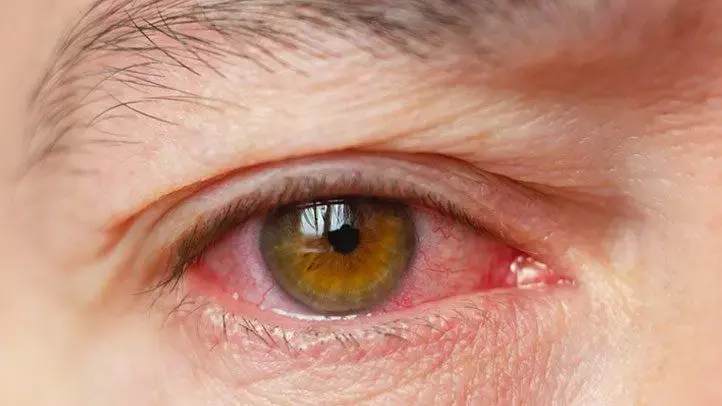- Home
- Medical news & Guidelines
- Anesthesiology
- Cardiology and CTVS
- Critical Care
- Dentistry
- Dermatology
- Diabetes and Endocrinology
- ENT
- Gastroenterology
- Medicine
- Nephrology
- Neurology
- Obstretics-Gynaecology
- Oncology
- Ophthalmology
- Orthopaedics
- Pediatrics-Neonatology
- Psychiatry
- Pulmonology
- Radiology
- Surgery
- Urology
- Laboratory Medicine
- Diet
- Nursing
- Paramedical
- Physiotherapy
- Health news
- Fact Check
- Bone Health Fact Check
- Brain Health Fact Check
- Cancer Related Fact Check
- Child Care Fact Check
- Dental and oral health fact check
- Diabetes and metabolic health fact check
- Diet and Nutrition Fact Check
- Eye and ENT Care Fact Check
- Fitness fact check
- Gut health fact check
- Heart health fact check
- Kidney health fact check
- Medical education fact check
- Men's health fact check
- Respiratory fact check
- Skin and hair care fact check
- Vaccine and Immunization fact check
- Women's health fact check
- AYUSH
- State News
- Andaman and Nicobar Islands
- Andhra Pradesh
- Arunachal Pradesh
- Assam
- Bihar
- Chandigarh
- Chattisgarh
- Dadra and Nagar Haveli
- Daman and Diu
- Delhi
- Goa
- Gujarat
- Haryana
- Himachal Pradesh
- Jammu & Kashmir
- Jharkhand
- Karnataka
- Kerala
- Ladakh
- Lakshadweep
- Madhya Pradesh
- Maharashtra
- Manipur
- Meghalaya
- Mizoram
- Nagaland
- Odisha
- Puducherry
- Punjab
- Rajasthan
- Sikkim
- Tamil Nadu
- Telangana
- Tripura
- Uttar Pradesh
- Uttrakhand
- West Bengal
- Medical Education
- Industry
Topical licaminlimab effective against non-infectious uveitis: Study

USA: A new study published in Translational Vision Science & Technology provided insight on how Licaminlimab is the first biologic that has effectively treated an intraocular disease with topical ocular administration.
The trial met its primary objective and the observed responder rate for licaminlimab was 56.0%. In adult subjects with acute anterior uveitis (AAU), ocular administration of licaminlimab was well-tolerated for up to 35 days.
Non-infectious uveitis is a highly varied collection of illnesses that have an underlying immunological origin, with or without concomitant systemic problems. Anterior uveitis is the most frequent kind of uveitis and can cause vision impairment or, in rare circumstances, blindness; acute anterior uveitis (AAU) is the most common form of the condition, accounting for up to 49 percent of all uveitis cases. Licaminlimab is a novel anti-TNF antibody fragment for topical use in the eyes. This phase II trial looked at licaminlimab's safety, therapeutic efficacy, and pharmacokinetics in patients with acute anterior uveitis.
In this randomized, multicenter, double-masked, parallel-group study, 43 adult patients with non-infectious AAU and a Standardization of Uveitis Nomenclature (SUN) anterior chamber (AC) cell score of 2+ or 3+ were randomly assigned (3:1) to licaminlimab eye drops (60 mg/mL, 8 drops/day for 15 days, 4 drops/day for 7 days, then matching vehicle for 7 days) or dexamethasone Clinical response (a 2-step drop in AC cell grade at day 15) was the major efficacy end objective. If the lower limit of the 95 percent posterior interval of the responder rate was more than 30%, a treatment effect was considered established. Licaminlimab serum levels were also determined.
The key findings of this study were as follows:
1. The lower bound of the 95% credible interval was 40% (i.e. >30 percent), suggesting a treatment effect in accordance with predefined criteria.
2. The day 15 response rate for licaminlimab was 56%.
3. By day 4, 36% of patients receiving licaminlimab were responding, and 76% had an AC cell grade of 0 after only one post-treatment visit.
4. Dexamethasone response rate on day 15 was 90%. (no inferential between-arm comparison was planned).
5. Both treatments went over nicely. Dexamethasone raised intraocular pressure from baseline, whereas licaminlimab did not.
6. In most cases, licaminlimab levels in serum were undetectable.
In conclusion, AAU was successfully treated in this pilot research with topical ocular licaminlimab, with good local tolerability (including a minimal rise in IOP) and no clear systemic safety problems. After topical ocular treatment, licaminlimab's systemic exposure was quite low.
Reference:
Pasquali, T. A., Toyos, M. M., Abrams, D. B., Scales, D. K., Seaman, J. W., III, & Weissgerber, G. (2022). Topical Ocular Anti-TNFα Agent Licaminlimab in the Treatment of Acute Anterior Uveitis: A Randomized Phase II Pilot Study. In Translational Vision Science & Technology (Vol. 11, Issue 6, p. 14). Association for Research in Vision and Ophthalmology (ARVO). https://doi.org/10.1167/tvst.11.6.14
Neuroscience Masters graduate
Jacinthlyn Sylvia, a Neuroscience Master's graduate from Chennai has worked extensively in deciphering the neurobiology of cognition and motor control in aging. She also has spread-out exposure to Neurosurgery from her Bachelor’s. She is currently involved in active Neuro-Oncology research. She is an upcoming neuroscientist with a fiery passion for writing. Her news cover at Medical Dialogues feature recent discoveries and updates from the healthcare and biomedical research fields. She can be reached at editorial@medicaldialogues.in
Dr Kamal Kant Kohli-MBBS, DTCD- a chest specialist with more than 30 years of practice and a flair for writing clinical articles, Dr Kamal Kant Kohli joined Medical Dialogues as a Chief Editor of Medical News. Besides writing articles, as an editor, he proofreads and verifies all the medical content published on Medical Dialogues including those coming from journals, studies,medical conferences,guidelines etc. Email: drkohli@medicaldialogues.in. Contact no. 011-43720751


